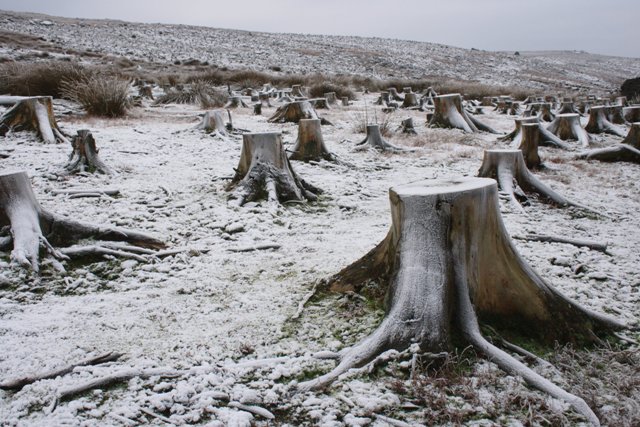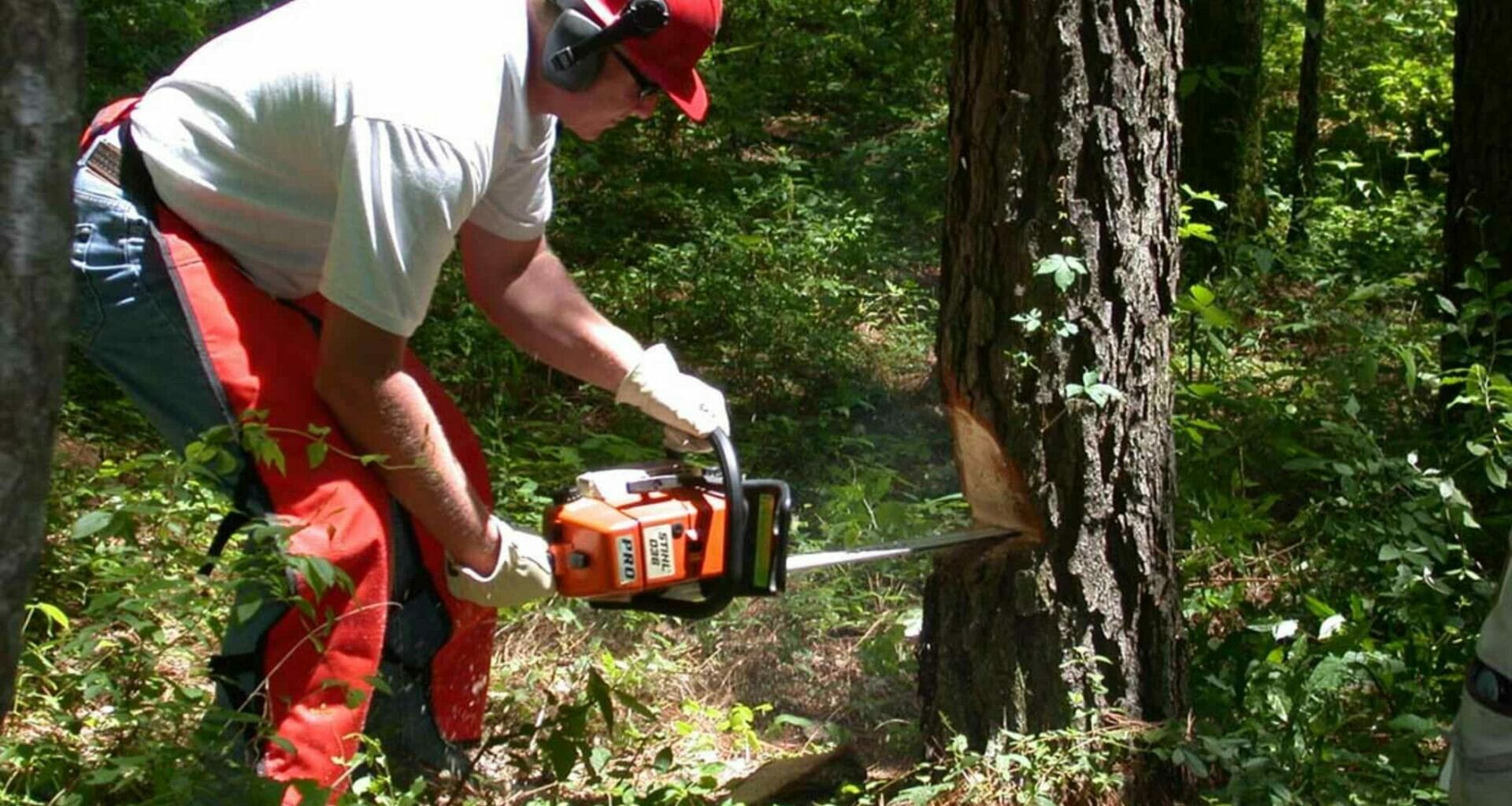Fewer than one per cent of unauthorised tree felling cases reported to Scotland’s forest regulators have ended in a successful prosecution over nearly a decade, The Ferret has found.
We obtained data via freedom of information law which shows that 601 unauthorised tree fellings were reported to Scottish Forestry and its predecessor between 2012/13 and 2020/21.
Just 234 (39 per cent) of these reports were investigated, however, while only four resulted in a prosecution over the nine-year period. This represents a 1.7 per cent prosecution rate for all investigated claims, and 0.7 per cent of all reports. Just one fine, of £1,250, was recorded.
The figures also show that the number of reports of unauthorised tree felling has risen in recent years. This has prompted opposition parties to warn that illegal fellers face “no consequence”, and to call for greater enforcement measures.
| Year | Unauthorised felling reports | Evidential Investigations | Successful Prosecutions | Fine (£) |
|---|---|---|---|---|
| 2012/13* | 28 | 15 | 1 | n/a – Settled out of court |
| 2013/14* | 38 | 20 | 1 | Not recorded |
| 2014/15* | 43 | 30 | 0 | |
| 2015/16 | 80 | 43 | 0 | |
| 2016/17 | 71 | 32 | 1 | £1,250 |
| 2017/18 | 55 | 23 | 1 | Not recorded |
| 2018/19 | 80 | 17 | 0 | |
| 2019/20 | 86 | 26 | 0 | |
| 2021/22 | 120 | 28 | 0 | |
| Total | 601 | 234 | 4 | £1,250 |
Woodland Trust Scotland said property developers were likely responsible for many unauthorised fellings, which was “simply not acceptable”.
Under the Forestry and Land Management (Scotland) Act 2018, illegal fellers can be referred to the procurator fiscal’s office and, if prosecuted, receive a fine of up to £5,000 per tree felled.
Scottish Forestry said it takes all unauthorised felling reports “very seriously and will always investigate and take action where possible.” But it added that not all reported unauthorised fellings were illegal, with most cases in recent years being exempt from felling laws.
The forestry quango, which is accountable to Scottish ministers, said it did not routinely record how much money it had been awarded from successful prosecutions. It also did not record data on the number of trees damaged, felled or destroyed in each incident.
In April 2019, the powers of Forestry Commission Scotland were devolved to Scottish Forestry. The felling permissions system then changed and penalties increased greatly.
Local authorities can also make a tree preservation order (TPO) to protect individual trees, groups of trees or woodlands. Those found guilty of felling a tree with a TPO can be fined up to £20,000.
Calls for stronger illegal tree felling enforcement
The Scottish Liberal Democrats said the lack of prosecutions represented “yet another instance of a crime that might as well be legal in Scotland under the SNP’s watch.”
“Illegal tree felling can lead to a serious loss of woodland, causing significant damage to the environment,” said the party’s justice and environment spokesperson, Liam McArthur MSP.
“If this government wants us to take its environmental pledges seriously, it needs to strengthen enforcement and hold perpetrators to account.”
Woodland Trust Scotland said there was “unfortunately, no easy answer to this problem.” “It would be good to see a few big successful prosecutions being well publicised, but casework can take a lot of effort and swallow up resources,” said the group’s George Anderson. “It is no easy task for Scottish Forestry.”

He claimed that illegal fellers are “more likely people who want to change land use away from trees, in some instances to built development.” “The woodland is an inconvenience they want to magic away,” Anderson added. “In a world facing climate and nature crises, that is simply not acceptable.”
In 2020, Scottish Forestry warned developers to get in touch before felling trees, or risk fines or be barred from building on a site for up to 10 years.
In 2021, The Ferret reported that a Renfrewshire councillor accused a developer of the “total annihilation” of nearby woodland – and failing to manage replanting efforts – as part of a felling which the council deemed to be unauthorised.
Scottish Forestry said the protection of woodlands was “of paramount importance” and it takes “all reports of unauthorised felling very seriously and will always investigate and take action where possible.”
“Not all reports of unauthorised felling are illegal or require felling permission,” said a spokesperson. “In the last three years, 75 per cent of unauthorised felling cases reported were actually found to be exempt from the requirement for a felling permission.”
A range of exemptions mean members of the public do not need permission before felling certain types of trees, such as those in gardens and public open spaces, those close to power lines, dead trees, and those affected by Dutch Elm Disease.
While a prosecution is required in order to secure a restocking notice pre-devolution, Scottish Forestry has the power to issue restocking directions without the need to go to court. This requires illegal fellers to replant and manage the site for up to 10 years.
“Since April 2019 we have issued 48 restocking directions for unauthorised felling,” added Scottish Forestry’s spokesperson.
The Scottish Greens said the felling figures were ”very worrying”. “Illegal tree felling is bad for our wildlife and our environment,” said Mark Ruskell MSP. “It can cause irreparable damage to our landscapes and our communities.”
“The numbers will not improve if people know that they will get away with it with no consequence. There needs to be a rethink of how these rules are enforced and how we can protect our local environments.”
On 1 January, illegal tree felling in England became punishable by prison sentences and unlimited fines – up from £2,500 or twice the value of the timber, whichever is higher. Developers had reportedly been previously undeterred by the risk of felling fines due to the lucrative development value of land.
The Guardian found in November that fewer than one per cent of alleged illegal tree felling cases reported to England’s Forestry Commission ended in a successful prosecution over the past 10 years.














